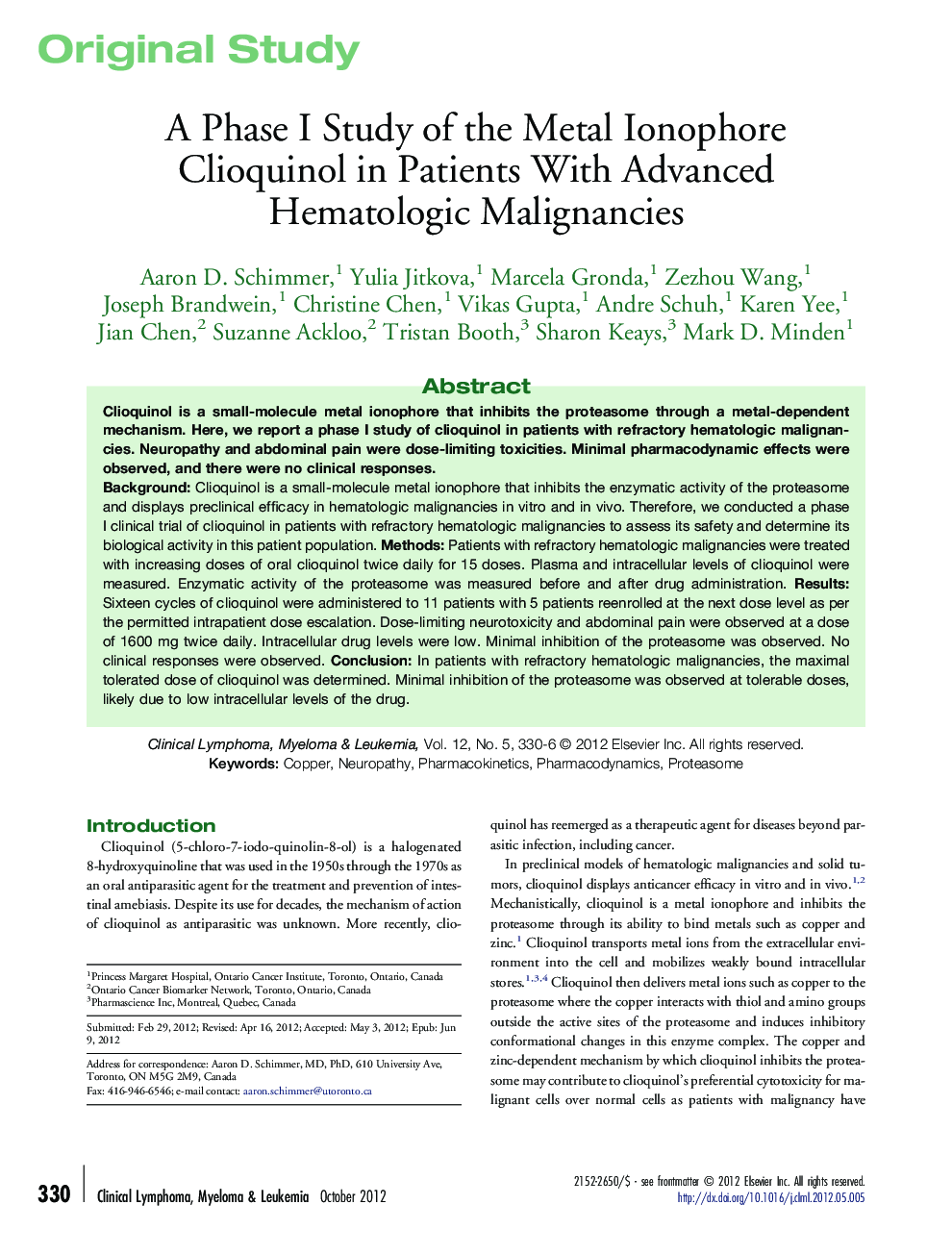| Article ID | Journal | Published Year | Pages | File Type |
|---|---|---|---|---|
| 2755253 | Clinical Lymphoma Myeloma and Leukemia | 2012 | 7 Pages |
BackgroundClioquinol is a small-molecule metal ionophore that inhibits the enzymatic activity of the proteasome and displays preclinical efficacy in hematologic malignancies in vitro and in vivo. Therefore, we conducted a phase I clinical trial of clioquinol in patients with refractory hematologic malignancies to assess its safety and determine its biological activity in this patient population.MethodsPatients with refractory hematologic malignancies were treated with increasing doses of oral clioquinol twice daily for 15 doses. Plasma and intracellular levels of clioquinol were measured. Enzymatic activity of the proteasome was measured before and after drug administration.ResultsSixteen cycles of clioquinol were administered to 11 patients with 5 patients reenrolled at the next dose level as per the permitted intrapatient dose escalation. Dose-limiting neurotoxicity and abdominal pain were observed at a dose of 1600 mg twice daily. Intracellular drug levels were low. Minimal inhibition of the proteasome was observed. No clinical responses were observed.ConclusionIn patients with refractory hematologic malignancies, the maximal tolerated dose of clioquinol was determined. Minimal inhibition of the proteasome was observed at tolerable doses, likely due to low intracellular levels of the drug.
